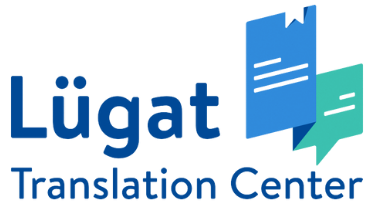The question of what to do to become a translator is frequently asked by those who want to learn languages and pursue this career. In this content, we will explain the basic steps you need to take to become a translator.
How to Become a Translator/Interpreter?
Planning a roadmap to improve your skills in the language you want to learn can be considered the first step. Knowing your native language well is particularly regarded as the most important requirement for translation.
Mastering the grammar of your native language is crucial for producing high-quality translations. However, since the text to be translated can belong to various fields such as medical, legal, and literary, it is not necessary for the translator to have terminological knowledge in all these areas. Therefore, gaining expertise in a few areas will be sufficient and necessary to become a translator. Additionally, experience is important for translations that do not require specialization.
Having an undergraduate or associate degree is one of the qualifications sought to become a translator. Acquiring the specified level of education to know the target language very well is essential and necessary. Graduating from relevant departments of universities such as translation and interpreting will be sufficient for the first step to becoming a translator.
Furthermore, a translator should be a good reader. As someone who writes and produces, a translator should always remember that a good writer must be a good reader. A love of reading and a regular reading habit will give the translator better expression skills in their translations.
Documents Required to Become a Translator
In this section, where we will list the necessary documents to become a translator, keep in mind that the information provided can be updated and that you should always use official sources to verify. Here are the basic documents required to become a translator:
- Language Proficiency Exams
- Academic Degree
- Translation Certificates (organized by universities in various fields)
- Sworn Translator Certificate
The above-mentioned documents are the requirements for translation. Therefore, having proficiency scores from language and skill exams and holding an undergraduate/associate degree in the relevant fields might be sufficient to become a translator. However, if you want to become a sworn translator, you need to obtain a Sworn Translator Certificate from any notary. Additionally, you can obtain translator certificates that certify your competence in areas such as Sports Translation, Academic Translation, etc., through certificate programs organized by universities.
Our Advice for Aspiring Translators
We share a comment from one of our expert translators for those who want to become translators:
“Avoid the mindset of ‘I can translate anything,’ which is the sectoral reflection of ‘I’ll do any job,’ and become an expert in the field you love. Remember that what will increase your job opportunities is not ‘everything’ you can do but ‘the one thing’ you do best.”
This advice is very significant. Focusing on a field where you feel effective and good will be very beneficial for translating with passion and doing it in the best way. Although the mindset of translating everything with the desire to earn more may initially provide returns, over time, inadequate translations will lead to the loss of customers and the inability to find jobs in areas where you are skilled. Therefore, while offering general services in various fields, always strive to develop yourself in subjects you choose as your specialty and remember that there may be jobs you might need to decline.
Saying “I can’t do it” for a job is never a sign of deficiency. On the contrary, it is a requirement of professionalism. So, while developing the areas in which you can provide translation services, do not hesitate to professionally state that you cannot handle situations where you lack competence in specific fields.
In this content, we have created a basic guide for those who want to become translators.




